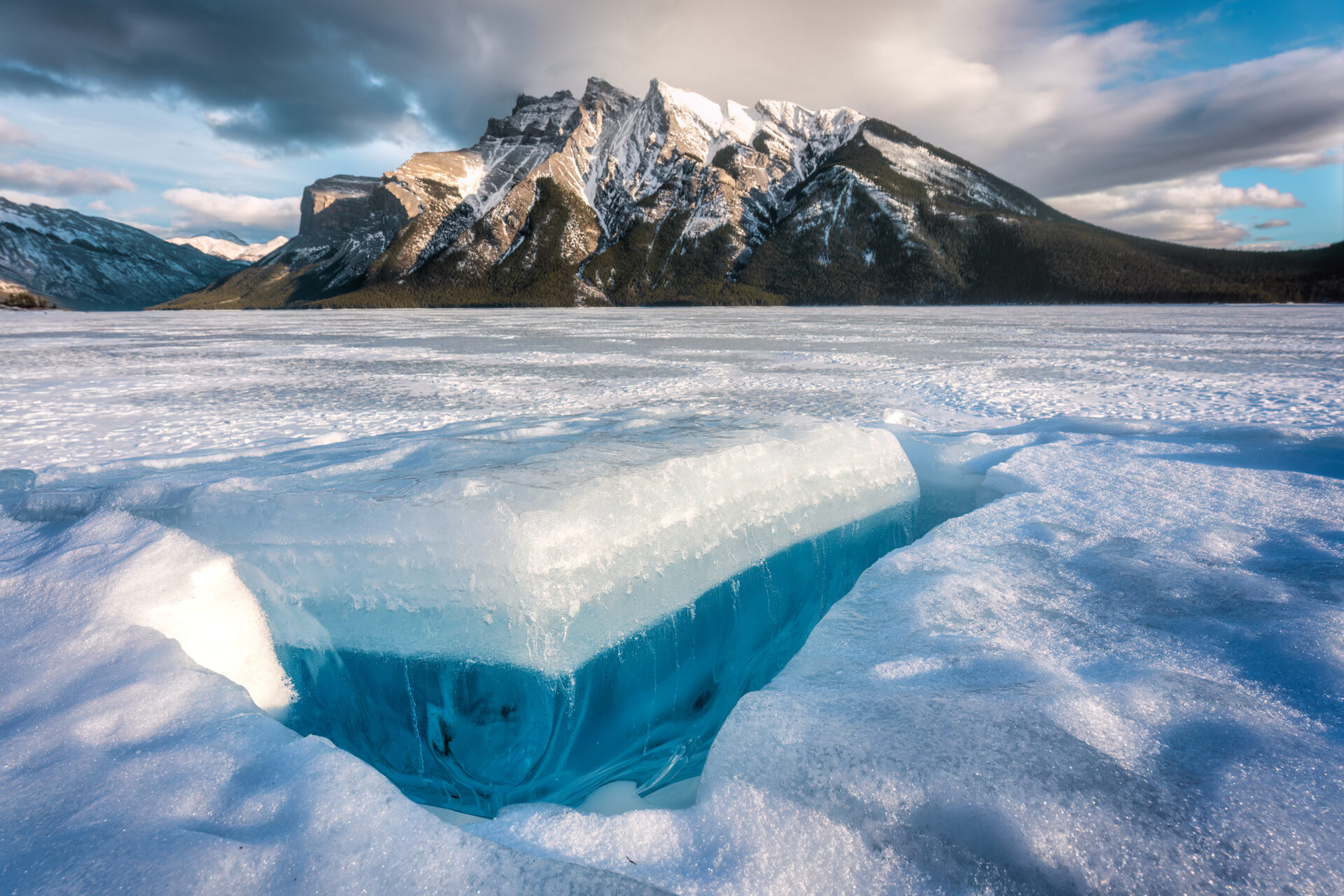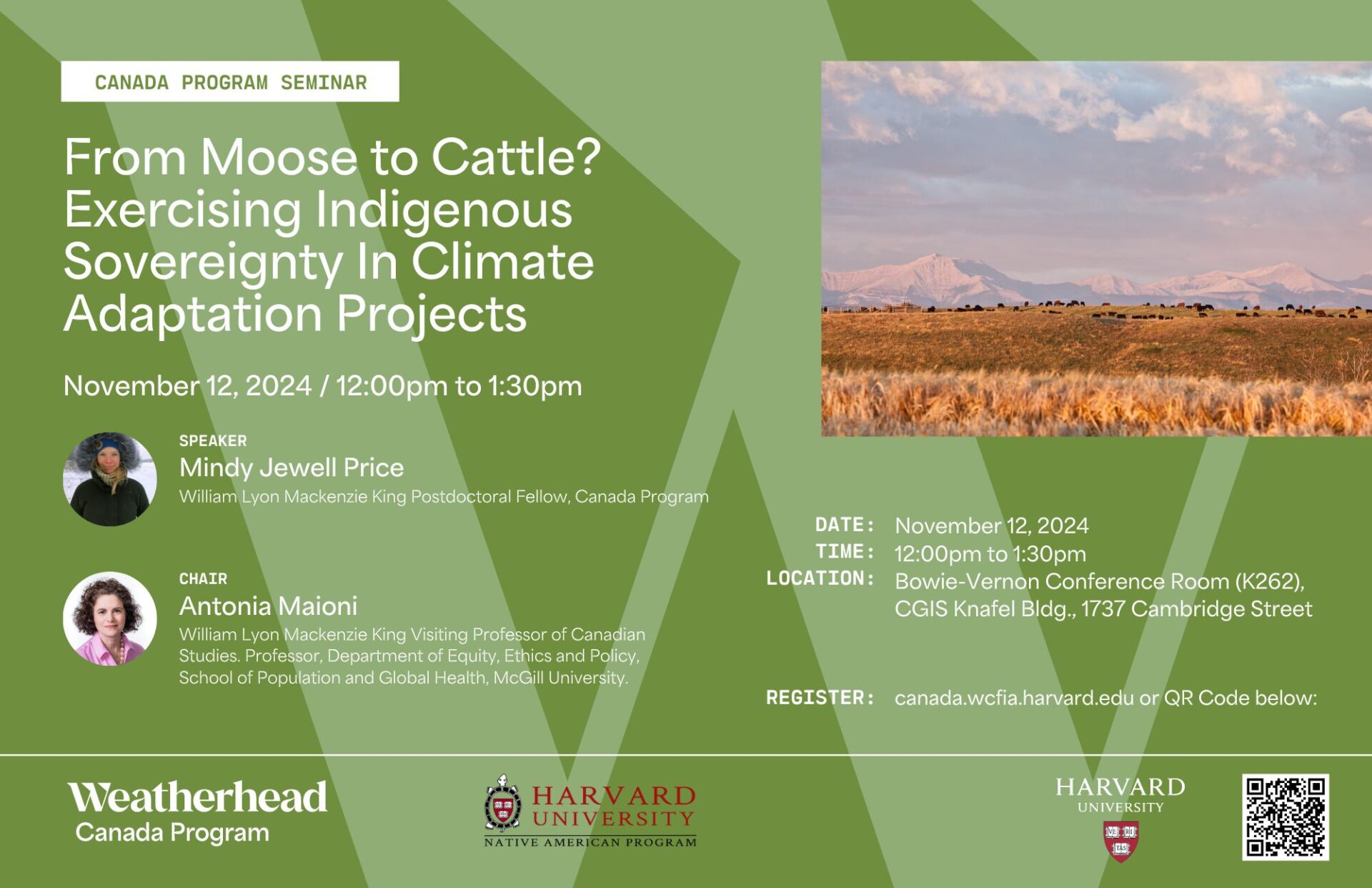
Against Cryo Nullius: Icy Materialities and Nunatsiavummiut Refusal of the Settler State
Bowie Vernon Room (K262), CGIS Knafel, 1737 Cambridge Street, CambridgeJoin the Weatherhead Center Canada Program for their Canada Seminar featuring Emma Gilheany, William Lyon Mackenzie King Postdoctoral Fellow, Weatherhead Canada Program, and Affiliate, Harvard University Native American Program (HUNAP).
Abstract: In this talk, I explore an analytic I have developed called cryo nullius—where icy scapes are perceived by settlers as spectacular, vast, and un-peopled. This perception allows for the conditions of infrastructural violence to manifest in the circumpolar north. I focus in particular on Cold War-era US Air Force radar bases that spanned the circumpolar north as well as present-day Inuit environmental practices to avoid toxicity that has seeped into the land and water from these ruins of technological excess. I argue that Nunatsiavummiut reject this colonial perception of and violence on their sovereign land through the specific materiality of the sub-Arctic. This work is a highly collaborative multi-modal anthropology that engages evidence including archaeological survey, ethnographic research, Inuit oral histories, and archives produced by Inuit governments, missionaries, and the USAF. This project foregrounds Nunatsiavummiut future-making to critique erasures of Indigenous politics and specific environmental harms in discourses of the climate crisis and Anthropocene.
